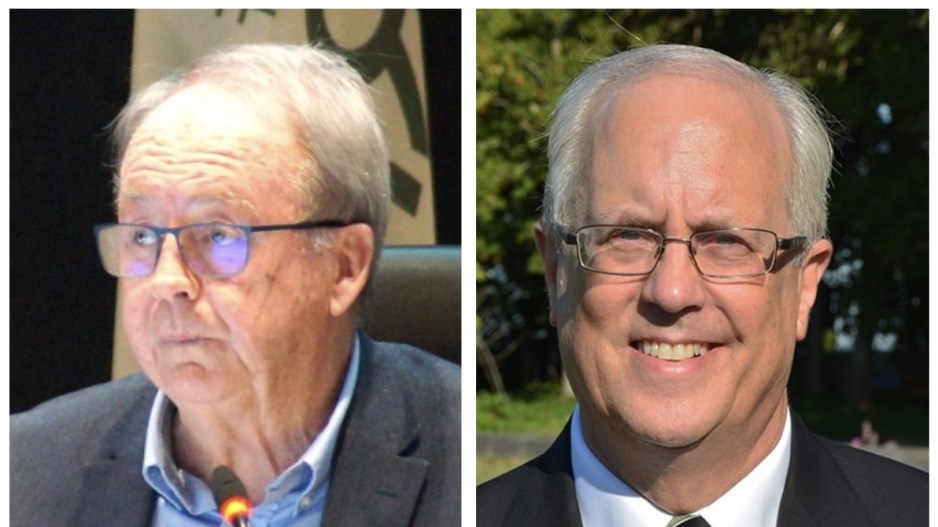Two of B.C.’s largest cities have recently rejected implementing a formal acknowledgement of living and conducting business on Indigenous land, despite it becoming commonplace elsewhere across the province.
Mayors in Richmond and Surrey have recently been outspoken about not having council meetings preceded by a territorial acknowledgement of their respective First Nations neighbours.
Surrey councillor Jack Hundial produced a motion last month to “develop a meaningful, respectful acknowledgement before every Council and Committee meeting … in recognition that we are settlers here on this Coast Salish Land.”
However, Safe Surrey Coalition (SSC) council members, including Mayor Doug McCallum, rejected the motion January 11 in a 5-4 vote.
SSC councillor Allison Patton said Hundial was not being “authentic.”
While Hundial expressed he was “shocked” after the rejection, McCallum explained, “we [City of Surrey] treat them [First Nations] better in Surrey than anywhere.”
McCallum agreed with his fellow SSC councillors Laurie Guerra and Doug Elford that there is nothing wrong with a land acknowledgement; however, it ought not to be legislated, or mandatory, under city policy.
“I have a problem with legislating language,” said Guerra.
McCallum reiterated the city is a leader in First Nations relations and local First Nations already bless council upon inauguration every four years. Furthermore, First Nations are recognized at city events, as opposed to council and committee meetings.
McCallum said no First Nations had complained about the lack of land acknowledgement, which typically notes land is “unceded,” however developed it may be.
Surrey’s school district acknowledges unceded Indigenous lands at its board meetings and Simon Fraser University has an acknowledgement for events at its Surrey campus that recognizes “unceded traditional territories of the Coast Salish peoples including the Semiahmoo First Nation, the Kwantlen First Nation, the Katzie First Nation, the Kwikwetlem First Nation, the Qayqayt First Nation and the Tsawwassen First Nations.”
Surrey has the largest urban Indigenous population in B.C. and has an “Urban Indigenous Strategy,” although there are no council updates posted online since the October 2018 election, when McCallum took office.
The City of Surrey is also part of the Surrey Urban Indigenous Leadership Committee.
Committee member Joanne Mills, outgoing executive director of the Fraser Region Aboriginal Friendship Centre Association (FRAFCA), called the rejection “a setback” in its relationship with the city.
FRAFCA board president Ted Swan called the rejected motion “pretty hurtful” and a “slap in the face” for not doing something “so simple.”
Swan said if slate politics got into the way of the motion’s acceptance then that “makes the situation even worse.”
Meanwhile, B.C. Assembly of First Nations Regional Chief Terry Teegee called on council to revisit the motion and approve it, according to CBC News.
"This is especially concerning considering the large Indigenous population in the City of Surrey, many of whom are young and starting families,” said Teegee to CBC.
Mills said land acknowledgements are important as a symbol of reconciliation and do not bind a municipality legally.
“It is about beginning the process of reconciliation,” said Mills.
However, in Richmond, two lawsuits with First Nations groups are preventing the City of Richmond from doing a land acknowledgement before council meetings, according to Mayor Malcolm Brodie.
The city, said Brodie, is in “serious litigation” with various First Nations, and “you don’t acknowledge what might be important to the subject of litigation.”
The Cowichan First Nation is currently in court with the City of Richmond and Government of Canada about land in southeast Richmond – 780 acres near Triangle Beach. The Cowichan are claiming Fraser River fishing rights as well. Government officials are questioning oral histories from Cowichan elders on the matter. Musqueam and Tsawwassen bands also oppose the Cowichan lawsuit.
Furthermore, there is a dormant lawsuit between the city and the Musqueam First Nations regarding the Garden City Lands.
Community activist Karina Reid has approached city staff about why a land acknowledgment isn’t part of council meetings as well as questioning the amount of Indigenous history available on the website, but she was told it was because Richmond is a diverse city and didn’t want to name a certain group.
Surrey and Richmond are B.C.’s second and fourth largest cities. Meanwhile, Vancouver and Burnaby, first and third respectively, have land acknowledgement policies.
With files from Richmond News




